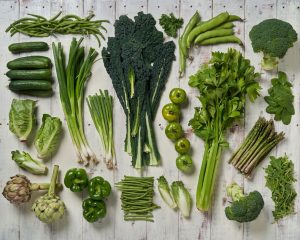Going meat-free for Veganuary? Here are the best meat-free foods to boost your protein intake if you hate protein shakes.
Whether you’ve embraced the Veganuary challenge and gone animal-product free for the month, or are just embracing a more plant-based, vegetarian diet, then you might find yourself running short of ideas for satisfying, protein-rich meals. And protein is, of course, very important for runners.
But befor you start reaching for supplements or protein powders, try to take a ‘food-first’ approach to your nutrition – and aim to get everything you need from whole foods, rather than supplements. And, remember, while it’s important to get protein in your diet, it’s not something to worry too much about.
Why? Most people eat enough already and actual protein deficiency is almost vanishingly rare. However, you can always optimise your intake – and there are plenty of sources that might surprise you, or even be part of your diet already. We tend to mistakenly think that meat or meat substitutes are the only sources of protein when there is plenty to be found in plants, nuts and even fruits. Here, then, are some of the best, tasty sources to add to your diet.
19 of the top high-protein vegan foods for runners:
19. Brussels sprouts
Protein: Around 3 grams per 80g serving
Sprouts are for life, not just for Christmas. They are nutritional superstars, packed with a good dose of potassium and vitamin K as well as protein. If you are wrinkling up your nose at the idea, maybe you’ve had too many overboiled tasteless ones. Try pan-frying or roasting them.
18. Broccoli
Protein: Around 3 grams per 80g serving (cooked)
Broccoli’s not only a great source of fibre, but it also has protein content too. And how’s this for a superfood – it also contains sulforaphane, which has been shown to reduce the ability of cancerous cells to multiply. Oh, and on top of that, it’s got calcium too, which is of course key for maintaining bone health. Here’s a great way to use it in a delicious Bengali dal curry.
17. Avocados
Protein: 2 grams per ½ avocado
As with many vegetables and fruits, avocados contain protein. Sure, it’s not a huge amount but when it’s combined with super healthy monounsaturated fatty acids and tastes amazing, it’s a win. Avocados also contain many other essential nutrients, including vitamin E, potassium, vitamin K, B vitamins, fibre, and folic acid. And not only that – when you combine it with other foods, they actually promote nutrient absorption, enabling the body to absorb more fat-soluble vitamins. Don’t like them on toast? How about using them to make a creamy pasta sauce.
16. Spinach
Protein: 4 grams per 100g serving (cooked)
Like many dark green veggies, spinach combines protein with a whole host of other healthy goodness – not least iron, which runners are more susceptible to running low on. To help absorb that iron, combine the spinach with a good source of vitamin C. Just don’t overcook it, or the spinach will sweat out important nutrients. Spinach also has a good level of vitamin B6. Try a spinach and walnut pesto –just replace the Parmesan with a veggie- or vegan-friendly alternative.
15. Potatoes
Protein: 4 grams in 1 medium white potato
Potatoes aren’t just pure carbs, but also another stealth source of protein. Don’t let the anti-carb evangelists put you off – a medium-sized jacket potato contains a good bit of protein, about 20% of your recommended daily dose of heart-healthy potassium and will fill you up nicely too. Try this veggie chill filling recipe with it.
14. Pumpkin Seeds
Protein: 5 grams per 30-gram serving
Pumpkin seeds aren’t just a super convenient way to get a dose of satiating protein, they’re total nutrient powerhouses, packing about half the recommended daily intake of magnesium, along with immune-boosting zinc, plant-based omega-3s and tryptophan – which may help ease you into a restful slumber.
13. Cashews
Protein: 5 grams per 30-gram serving
In addition to a decent protein punch, cashews contain 20 per cent of the recommended intake of magnesium, along with 12 per cent of the recommended intake of vitamin K – two essential bone-building nutrients. Cashews also have a healthy dose of antioxidants that can help to reduce inflammation, making it a solid post-run choice. Not keen on them in their whole form? Why not treat yourself to a jar of cashew-nut butter – delicious on toast or even stirred into porridge.
12. Steel-cut oats
Protein: 5 grams per 30-gram serving
In addition to a decent protein punch, cashews contain 20 per cent of the recommended intake of magnesium, along with 12 per cent of the recommended intake of vitamin K – two essential bone-building nutrients. Cashews also have a healthy dose of antioxidants that can help to reduce inflammation, making it a solid post-run choice. Not keen on them in their whole form? Why not treat yourself to a jar of cashew-nut butter – delicious on toast or even stirred into porridge.
11. Chia seeds
Protein: 4 grams per 30-gram serving
Chia packs a good dose of protein in those little seeds, which are also a great source of alpha-linolenic acid (ALA), a type of plant-based omega-3 fatty acid. Bonus: Omega-3s help stimulate the satiety hormone leptin, which signals your body to burn these fats instead of storing them.
10. Almonds
Protein: 6 grams per 30-gram serving
Along with a punchy dose of protein, almonds also deliver vitamin E, which is great for the health of your skin and hair. They also provide a whopping 61 per cent of your daily recommended intake of magnesium – and that’s really important for runners. Magnesium is needed for energy production, muscle recovery and bone development. It also protects from oxidative damage, supports resistance to mental stress and acts as a muscle relaxant. Oh, and might help your heart too. Here are some almond recipes both savoury and sweet.
9. Chickpeas
Protein: 6 grams per 120g serving
Chickpeas are rich in both protein and fibre and low in fat. They also contain iron, magnesium, potassium, zinc, copper, manganese, selenium, vitamin B6 and even vitamin C. They are also low on the glycemic index, so they are a carb that won’t send your blood sugar on that roller coaster ride. Vegetarians might want to try this delicious frittata, while vegans can stock up on hummus – and smugly cite a 2016 study that showed people who regularly eat hummus tend to have higher intakes of fibre as well as nutrients including folate, magnesium, potassium, iron, and vitamins A, E, and C.
8. Wild Rice
Protein: 8 grams per 200g serving (cooked)
Quinoa has had its time – there’s a new grain in the spotlight. Though technically it’s a grass, wild rice has a unique nutty taste and slightly chewy texture, which you may well prefer to the softer quinoa. It contains phosphorus, zinc, magnesium, and B vitamins. and it’s a good source of antioxidants too, as well as providing a good mix of protein and fibre. One micronutrient abundant in wild rice is manganese, which is required for the normal healthy functioning of your brain, nervous system and many of your body’s enzyme systems. Veggies, try it in this delicious rice bowl recipe with eggs, and vegans, how about this tasty bean and wild rice salad (substitute the honey for a plant-based sweetener if required).
7. Peanut and peanut marathon
Protein: 7 grams per 30-gram serving (or 2 tablespoons of peanut butter)
Peanut butter is an absolute staple of the runner’s food cupboard. And peanuts are not only delicious as a spread on your morning toast or bagels but also incredibly versatile – you can use them in everything from curries to flapjacks. Peanut butter also has calcium, magnesium, phosphorus, and potassium. The combination of being high in fat with protein, carbs, and fibre also makes it super satiating, helping stave off hunger for a while. So perfect fuel for a long run – and recovery food after. Peanut butter: it’s for every meal.
6. Butter beans
Protein: 7.6 grams per 85-gram serving (cooked)
Butter beans are a store cupboard hero – high in protein and fibre, folate, starch and iron, a great source of carbs and low in fat and calories. In addition to filling protein, butter beans contain the amino acid leucine, which may play a big role in healthy muscle synthesis among older adults. If you like the taste and texture, they are lovely in a salad, but if not, try them in this delicious tomato and butter bean soup.
5. Black beans
Protein: 7.6 grams per 85-gram serving (cooked)
With a similar amount of protein to butter beans, black beans are also packed with heart-healthy fibre, potassium, folate, vitamin B and a range of phytonutrients. Often found in Mexican recipes, they are delicious in salads, or cooked into a stew. Why not try a classic frijoles negros? They work particularly well in slow cooker recipes too.
4. Lentils
Protein: 9 grams per 100-gram serving
An absolute superhero food, lentils are also the most versatile ingredient. You can make them into burgers, soups, and dips, add them to salads or stews and they come in a rainbow of colours, too. They are rich in iron as well as protein and many other nutrients and have even been shown to lower cholesterol and reduce the risk of heart disease. Why not try a vegan Lebanese lentil salad bowl after a run, or if that sounds too much like summer food, try the delicious warming Shepherd’s pie?
3. Tofu
Protein: 8 to 15 grams per 85-gram serving
Gone are the days when tofu only came in off-puttingly pale, crumbling blocks. You can now get it in marinated blocks, diced, soft, hard, crumbly, fried … you name it, tofu can provide it. If you prefer a firmer texture, pan-fry it or saute it in a stir-fry, or if you are happy to try a different texture, buy soft tofu and scramble it on sourdough in place of eggs. Whatever you use it for, tofu is packed with complete plant protein to boost recovery. Here are five tofu recipes to try after your next run.
2. Tempeh
Protein: 16 grams per 85-gram serving
Tempeh is made by fermenting cooked soybeans and shaping them into a dense cake that can be sliced and pan-fried like tofu. It’s a superb source of protein, iron, manganese, phosphorus, magnesium, and calcium. It’s also low in carbs and sodium. But while tofu is a chameleon ingredient, tempeh is hard to disguise so it may be a bit ‘marmite’. The texture is nutty and chewy – but the reward is that it packs significantly more protein and fibre than tofu – and some find it easier to digest because it’s fermented. Try the Tiba tempeh marinated pieces 0r if you prefer a stronger flavour, why not try a spicy BBQ tempeh sandwich?
1. Soybeans
Protein: 18 grams per 150-gram serving (cooked)
One of the healthiest snacks you can opt for, a small portion of cooked soybeans – which you may well know as edamame – pack a huge protein punch. In addition to being a great protein source, edamame is rich in healthy fibre, antioxidants, and vitamin K – and plant compounds which may reduce the risk of heart disease. And if you get bored of eating them with a pinch of salt or chilli, then why not try adding them to other recipes – like a felafel wrap or noodle dishes.
Article Source ; https://www.runnersworld.com/uk/nutrition/




